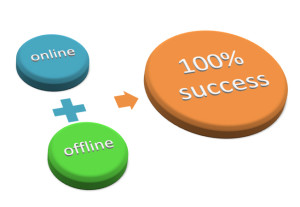Despite a frustrating obligation for agents to join a minimum of 3 realtor associations (NAR, CAR, and a local board), they do send out some quality literature. Yes, those glossy unsolicited magazines we get have surprisingly good information. Many times better than what you find written by “realtor gurus”.
I’m posting an article I abridged from NAR. If you wish to see the unabridged article click HERE
7 Secrets to Winning Over More Buyers
What are buyers really thinking, and how can you better assist them? Here’s how to start improving your buyer relationships.
MARCH 2012 | BY MELISSA DITTMANN TRACEY
The following are seven suggestions for real estate professionals in better assisting today’s buyers for improved client relationships.
1. Don’t Be Slow to Respond
Behind only honesty and integrity, response time is rated as a “very important” quality in real estate professionals, according to the NAR survey.
So how quick is your response time? Real estate professionals ignore or respond too late to nearly 75 percent of customer leads that come in through online channels, according to a secret-shopping study by PCMS Consulting and One Cavo. The study, which evaluated practitioners’ response rate to Internet leads from customers, found that nearly half of agents did not respond to the Internet leads. And, 23 percent of the leads that did receive calls back were contacted about eight hours after forms were submitted.
That’s still too late, the survey’s researchers say. “Today’s Internet consumer is expecting a response certainly within the hour but, more likely, within 15 or 20 minutes,” said Bradley Miller, One Cavo founder and president.(For help in improving your response time, check out Buyer’s Guide: CRM Solutions or 6 Best Practices for Online Leads.)
2. Be a Savvy Negotiator
The good news: For the most part, most buyers are satisfied with the real estate agents they choose, and nine out of 10 say they would recommend their agents to others, according to NAR’s 2011 Profile of Home Buyers and Sellers. But there’s one area in particular they feel agents need a little extra work: negotiation skills. This and technology skills were the only areas where buyers expressed less satisfaction with their agents.
Today’s buyers want a deal — or a steal. Are your negotiation skills up to par for challenging transactions? In your last few negotiations, how successful have you been? Have your buyers felt satisfied in the end? Or have too many deals fallen apart lately?
There are plenty of places to turn for a brush-up on your negotiation skills. Several REALTOR® designations offer negotiation classes, such as some offered by the Real Estate Buyer’s Agent Council, or you can find courses or resources through the new REALTOR® University.
3. Don’t Come Across as an Amateur
Home buyers love to view photos and videos of homes, which has compelled more real estate professionals to hastily put on photographer and filmmaker hats. But if video isn’t your forte, then maybe you shouldn’t grab that pocket camera or smartphone and broadcast your work on YouTube. You actually might do more harm than good.
One real estate professional in the Dallas area decided to shoot several neighborhood videos from a handheld camera, turning buyers off of several neighborhoods in the area. The videos were all captured as the agent drove through the neighborhoods (safety tip: don’t film and drive) and captured it all on a cloudy, winter day — not exactly the best backdrop for making neighborhoods look appealing. If you want to do a neighborhood video, wait for a sunny summer or spring day to show off the vegetation and greenery, make sure you keep the camera in focus, and film when you’re not on the move. Better yet, maybe take a film class or enlist an aspiring filmmaker for help. Same goes for property pictures, too — if you’re not good at shooting photos, then seek professional help, or obtain the skill-set you need to do a professional job.
4. Have a Web Presence
As a determining factor for choosing an agent, reputation was rated No. 2 behind trustworthiness, according to the NAR survey. For many consumers, online search has become a go-to method to find out more about a practitioner’s business, and one of the things they look for is other clients’ reviews. If nothing comes up when they Google you, some buyers will assume you’re not very established in your business, and they may have a tough time putting their biggest purchase in your hands. If it’s a Facebook page with some questionable photos, well, that won’t likely win you any clients either.
So, how’s your online rep?
Social networking pages like LinkedIn often come up early in Web searches, so make sure they’re up-to-date and represent your business. Also, take advantage of the “recommendations” feature to highlight customer reviews.
According to surveys, home buyers also say real estate practitioner and company Web sites have been useful in their home search. Here’s what they rated as top site features:
1. Photos
2. Detailed information about properties for sale
3. Virtual tours
4. Interactive maps
5. Real estate agent contact information
6. Neighborhood information
5. Don’t Dodge a Question
There are certain questions you can’t answer because of fair housing laws, such as “What kind of people live in this neighborhood?” or “Is this home in the best school district?” But if you just ignore the question or gloss over it, you inadvertently make the buyer lose faith in your knowledge about the market or feel like their question didn’t matter.
Keep data on demographics, crime, and school reports with you, available at your Web site, or even in a special buyer packet you give clients when touring homes. That way, when they ask you a question you can’t answer, you can point them to where they can find it on their own.
6. Follow the 3 E’s
You’ll have to wear multiple hats as an agent. Be ready to educate, empathize, and encourage.
Educate: Educate the buyer on the area, what comparable homes are selling for, the average price per square foot in the neighborhood, and every stage in the buying process.
Empathize: Buyers are bound to throw something at you that may seem absurd during the home search. Remember, this is a big step, and it’s scary so they may get cold feet and suddenly a seemingly easy fix to you — like the color of the walls — becomes a huge obstacle they can’t overlook. Even if the gripe seems unreasonable, keep your cool, listen to their complaint so they feel heard, and then propose a practical solution or find a compromise. (Read more: Get to the Root of Buyers’ Objections.)
Encourage: Once your buyers select a home, validate their decision. Review the priorities they stated in their home search, and how well the home measures up: Did they find a good match? A big portion in the buying process is the feeling of validation — that they made a good decision, which will help lead them all the way to the closing table.
7. Don’t Pull a Houdini
After buyers select a house, don’t just disappear until closing day. You’ll make them feel abandoned. While buyers say they most want assistance in finding the right property, they also say they want their agent’s help with understanding the entire process and recommendations of service providers.
Find excuses to make contact, even when there’s nothing to do that week to move the transaction forward. For example, “I saw this interesting article in the newspaper and thought of you,” or “I just drove past the house and it looks great. I know you’re getting excited for move-in day.” Send happy birthday greetings or remember special dates. For relocation clients, help them get adjusted to the community by offering up fun things to do in the area. (Get more ideas for keeping in touch.)
The end of a transaction is really just the beginning to building a relationship with your clients, proving you’ll be there every step of the way and beyond, to the next time they need your services — or their friend does.







